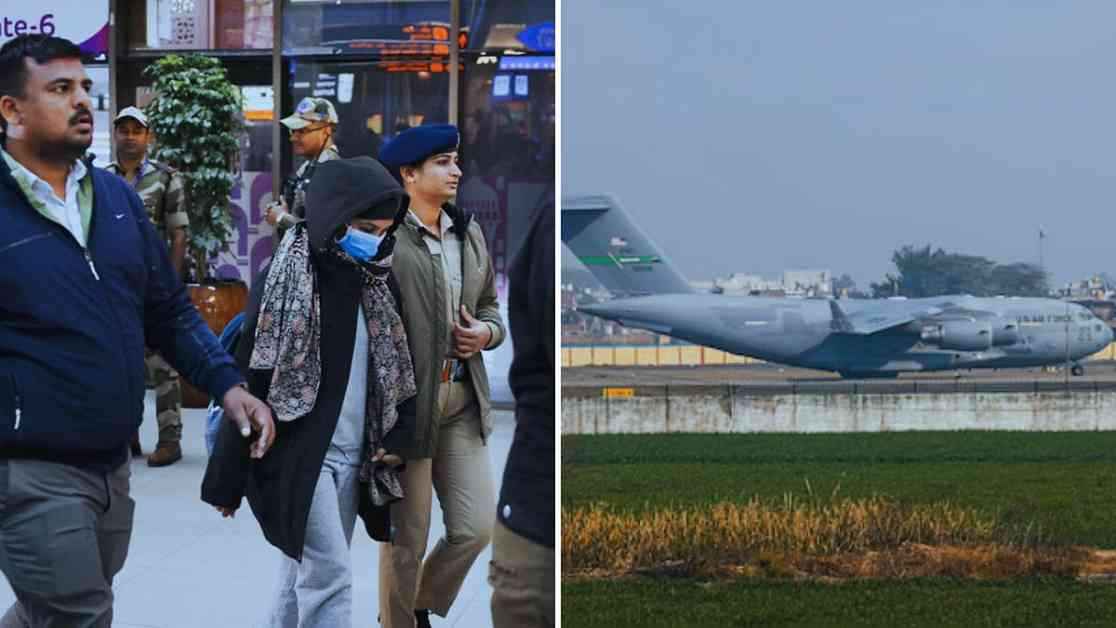A dozen Indian immigrants, who had been deported from the US to Panama, made their way back to India on Sunday, February 23. The repatriation efforts were part of a larger operation involving Panama, Costa Rica, and the US, aiming to assist nearly 300 undocumented immigrants, including many from Central Asian countries. Upon their arrival at New Delhi’s Indira Gandhi International Airport, the deportees were greeted with mixed emotions, ranging from relief to uncertainty.
Challenges Faced by Deportees
The journey of these Indian nationals began with their deportation from the US to Panama, where they found themselves in a state of limbo. Unable to return to their home countries due to various reasons, the deportees had to rely on the collaboration between Panama, Costa Rica, and the US to facilitate their repatriation. This complex process involved multiple transfers and coordination efforts, demonstrating the intricate challenges faced by individuals caught in the web of immigration policies.
Amidst the bureaucratic hurdles and logistical arrangements, the human stories of these deportees came to light. For some, the prospect of returning home after a prolonged absence was met with a sense of longing and nostalgia. Others grappled with the uncertainty of what awaited them in India, having built their lives in foreign lands. The emotional turmoil experienced by these individuals underscored the personal toll of immigration policies and the human connections that transcend borders.
International Cooperation and Reintegration Efforts
The repatriation of these Indian nationals was made possible through the joint efforts of multiple countries and international organizations. Costa Rica’s decision to accept undocumented immigrants from India and Central Asia marked a significant development in the ongoing immigration crisis. By partnering with the US and the International Organization for Migration (IOM), Costa Rica paved the way for the safe return of individuals who had found themselves in challenging circumstances.
The collaboration between governments and humanitarian agencies highlighted the importance of international cooperation in addressing complex migration issues. As the first group of deportees arrived in India, the need for holistic reintegration programs became evident. Ensuring the well-being and stability of returning migrants required a comprehensive approach that went beyond logistical arrangements to encompass social support, legal assistance, and community engagement.
As the deportees set foot on Indian soil, a sense of relief mingled with apprehension, signaling the beginning of a new chapter in their lives. The journey from Panama to India was not just a physical voyage but a testament to resilience and perseverance in the face of adversity. The stories of these individuals served as a poignant reminder of the human impact of immigration policies and the enduring spirit of those who seek to rebuild their lives against all odds.
The repatriation process, though complex and challenging, represented a glimmer of hope for the deportees and their families. As they embarked on the next phase of their journey, the support of communities, governments, and humanitarian organizations would play a crucial role in ensuring their successful reintegration. The path ahead may be uncertain, but the resilience and determination of these individuals shone brightly, illuminating a path towards a better future.














